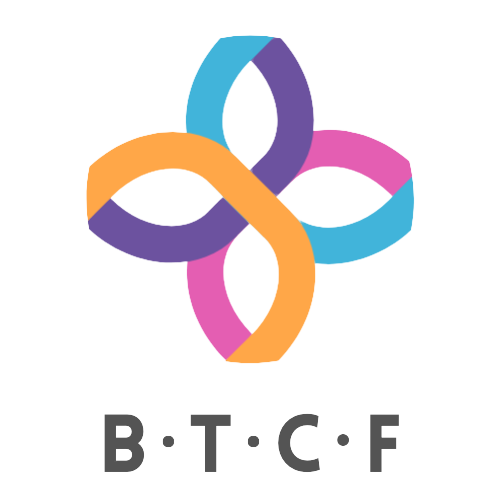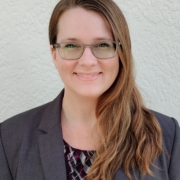Outliving My Eating Disorder
By Rachel DesRosier
I was a “normal” kid. Puberty hit me and I became chubby. I was sensitive to the world in which I was being raised – during a time when Americans were all up in arms about obesity (1990s-early 2000s).
I remember family members making remarks about me – “Doesn’t she ever eat anything green?” “How much does she weigh?” And I began to internalize it and hate myself. At 9 years old, I began to cut some “bad” foods out of my diet. At 11 years old, I would periodically see how long I could go without eating. My friendships were tumultuous around this time, and I felt jealous of the friends that were naturally skinny. My fourth-grade crush said he could never like me as long as I was fat. Boys would slap my arms to make them jiggle.
In middle school, I was gothic, and I embraced my creative side. It could have been a positive turning point, but I continued to internalize what was around me and many adults did not understand or support me. They had no clue that I was trying to revolutionize my inner world, which was full of turmoil. Be understanding and supportive of your teens – they are trying to make sense of the world.
At 16, I remember feeling like my body was not really mine, it was everyone else’s. And there were so many things wrong with my body. As my life felt out of control, my eating disorder worsened. I enjoyed lifting weights in the gym and used my rage as a catalyst. I became the captain of my school’s Girl’s Weightlifting Team.
I counted the calories in lettuce! Maybe I had anorexia athletica, but nobody would have diagnosed me back then. The adults in my life were just happy I wasn’t another chubby teen; they did not ask questions. I was really starving myself; my reward for working out was a handful of food. There were a lot of foods that I considered to be “bad” and I remember going on a kayak trip with my family and flipping out because the kayak rental place didn’t have bottled water (all the beverages had sugar in them). I probably really needed that sugar! I was still seeing gains in the weight room, so I continued my low-calorie diet. I got used to feeling hungry. Sometimes it gave me a high.
Eating disorders are two things – it is both an addiction as well as a response to feeling out of control. Those of us with eating disorders like to fly close to the sun, it feels nice there, and we don’t really know how close we come to teasing the Grim Reaper while we do it. At 17, I was slowly killing myself. I was starving and over-exercising my body. That landed me in the hospital. None of the doctors figured it out. When I got out of the hospital, I had chronic health issues.
How do you survive an eating disorder? You do whatever you have to. Like an addict, you have to choose to get better. Your mental health and well-being have to be #1. You are unlike anybody else; therefore, your treatment needs to be specific to you. Learn your triggers. If you fail, remind yourself that people fail all the time. You know who survives in life? The people who keep trying (AKA the “failures” = Survivors). Eventually, the universe says, “Oh she’s not giving up” and you will see progress.
- Learn your triggers: Notice when you dislike yourself. Take note when you plan your diet. Those little thoughts “Why is my stomach so big” and “Why does my fat jiggle there” and “Maybe I shouldn’t eat that because it will just make me fat” are the start of mental illness. Do not water that seed!
- Spin it! Put a positive spin on your thoughts by responding to yourself – Oh you think my fat jiggles too much? Fat is actually the reason you are alive. Fat is not the enemy. It provides energy whenever you need it. So, when your brain starts being mean to your fat – Stick up for fat! Stick up for the little guy, please. Sometimes, it feels like nobody else will. When that comes into mind, be the hope for yourself. You are THE hope because you are the owner of your body and all its tiny happenings that make it possible for you to stay alive.
- Change how you feel about food. Eat foods you enjoy. Focus on what makes them healthy AND on what makes them taste good. It’s normal to enjoy food. The idea of “good” and “bad” no longer exists. If your brain tries to trick you into playing a game of good versus bad – take the game away.
- If you over-exercise, remind yourself that your body cannot function properly without good rest. The body repairs itself when you are most relaxed (and in the deepest parts of your sleep). It’s okay to give those muscles a break.
- Break up with math. Make an effort to stop counting calories and grams and monounsaturated fat, etc. When you are in that headspace, math is not your friend. Math is your friend when you count your blessings.
About the author: Rachel DesRosier lives in Bradenton, FL. As the owner of Medical Zebra LLC, she promotes patient advocacy and shares resources for patients with chronic & invisible ailments. Visit here to learn more about the health issues her eating disorder caused and her journey with chronic pain. Visit here to learn more about the health issues her eating disorder caused and her journey with chronic pain.


